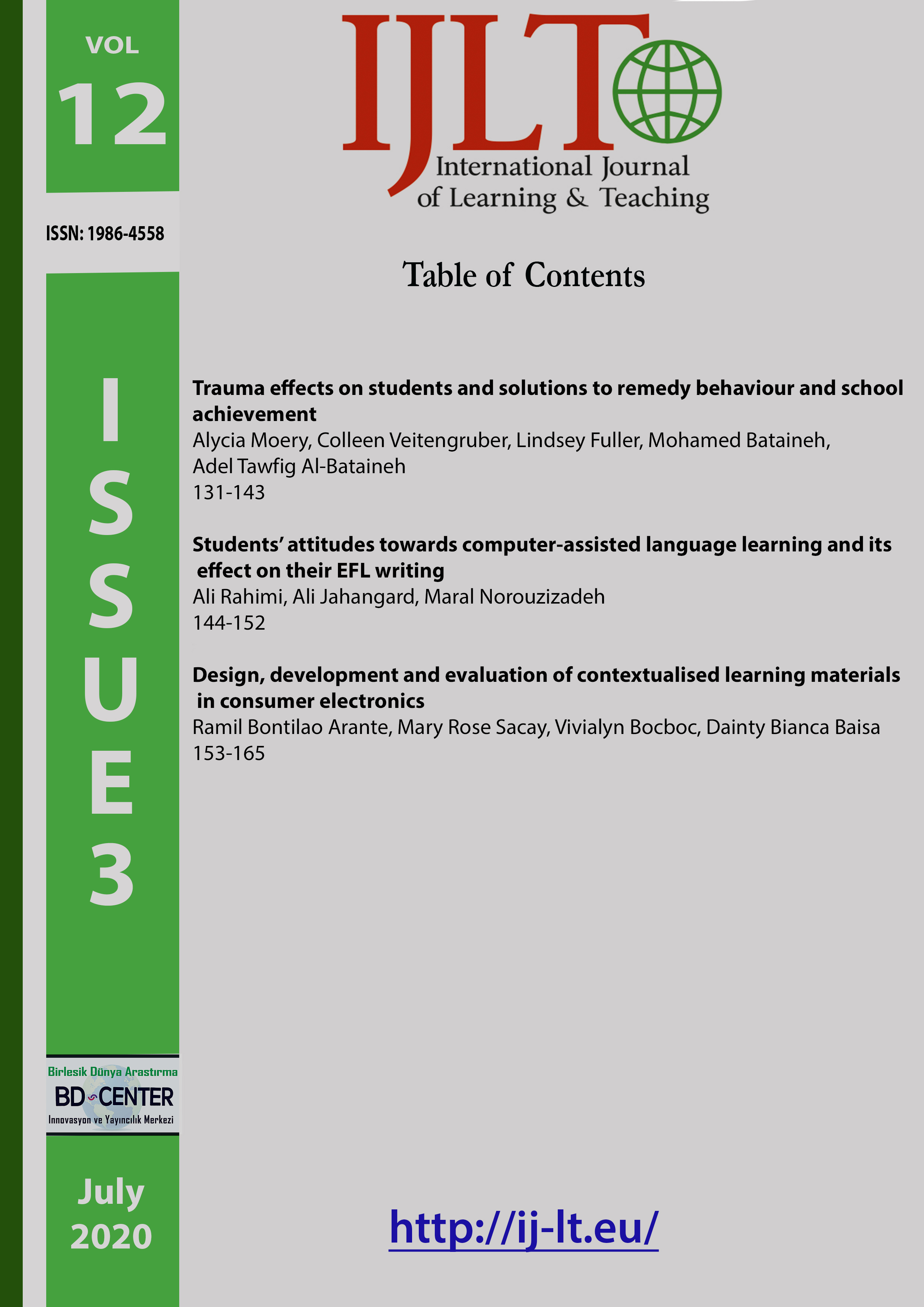Trauma effects on students and solutions to remedy behaviour and school achievement
Main Article Content
Abstract
The purpose of this study was to analyse the effects of implementing trauma-informed practices, such as restorative circles and mindfulness techniques, on academic performance and student behaviour. A mixed methods study was initiated to implement restorative practices and mindfulness techniques in an urban fifth grade class. Research was conducted to determine its effects on building students’ resiliencies and lessening patterns of distress. Teacher self-reflection journals, Daily Behaviour Assessment tools and positive verbiage were logged and utilised over a 6-weeks period. The class consisted of 26 students, with 49% of the students receiving tier II and III instruction and 15% of the students receiving social work services. An enhancement in academic performance, student behaviour and classroom climate was observed by the researchers. It is recommended that the researcher continues monitoring the effects of incorporating restorative and mindfulness practices within the classroom for the remainder of the school year, in addition to initiating school-wide training.
Keywords: Childhood trauma, trauma-informed schools, restorative practices, mindfulness interventions, effects of trauma.
Downloads
Article Details
Authors who publish with this journal agree to the following terms:
- Authors retain copyright and grant the journal right of first publication with the work simultaneously licensed under a Creative Commons Attribution License that allows others to share the work with an acknowledgement of the work's authorship and initial publication in this journal.
- Authors are able to enter into separate, additional contractual arrangements for the non-exclusive distribution of the journal's published version of the work (e.g., post it to an institutional repository or publish it in a book), with an acknowledgement of its initial publication in this journal.
- Authors are permitted and encouraged to post their work online (e.g., in institutional repositories or on their website) prior to and during the submission process, as it can lead to productive exchanges, as well as earlier and greater citation of published work (SeeThe Effect of Open Access).
